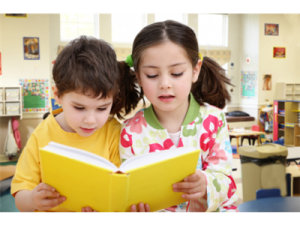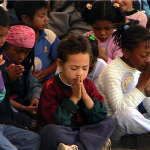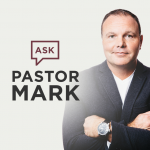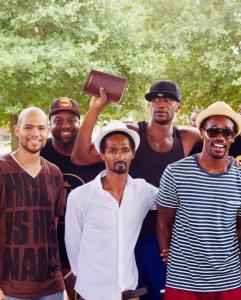 Grace and I will never forget the first days of school for each of our five children. We walked each to their classroom where they nervously took their seat ready to begin a new phase of their little life. Meanwhile, we walked to our car, shut the door, looked at each other, and started crying. We did this five times! Knowing how to best educate our children is a difficult task. Christians with strong and vocal opinions often disagree. Perhaps briefly examining the history of modern education can help set a foundation so that parents can make a decision regarding the education of their child.
Grace and I will never forget the first days of school for each of our five children. We walked each to their classroom where they nervously took their seat ready to begin a new phase of their little life. Meanwhile, we walked to our car, shut the door, looked at each other, and started crying. We did this five times! Knowing how to best educate our children is a difficult task. Christians with strong and vocal opinions often disagree. Perhaps briefly examining the history of modern education can help set a foundation so that parents can make a decision regarding the education of their child.
As a teacher, Jesus the rabbi has made an unparalleled difference in education. Christians are called People of the Book, and as Christianity has spread, so has language translation, publishing, education, and literacy.
People of the Book
Many of the world’s languages were first set to writing by missionaries seeking to translate the Bible into the native language of a people group. They recognize that God loves people from every nation, tribe, and tongue of the earth. This work continues today as the Bible has been translated into roughly three thousand languages. When Christians encounter a people group without a written language, ministries such as Wycliffe actually create a written language for such people prior to translating the Bible into their newly created language.
In the so-called Dark Ages, many of the classics of Western literature were preserved by priests and monks who hand-copied them and started the first European universities in cities like Paris and Bologna. The printing press was invented by the Christian man Johannes Gutenberg (1398–1468). Bibles and other Christian literature were chiefly in his mind when he created the revolutionary device. Soon thereafter, Christianity became the leading force in literacy and education in the Western world.
Education in America
With the landing of the Christian Puritans in The US came this passionate commitment to literacy and education. From the time the Pilgrims landed in 1620 until 1837, virtually all American education was private and Christian. In the nineteenth-century colonies of Massachusetts and Connecticut, the literacy rate among men ranged from 89 percent to 95 percent. The pastors in the colonies were often the most educated men and led both the intellectual and spiritual life of the people. In Puritan New England, the first schools (known as common schools) were founded as distinctively Christian. Soon, tax monies were raised to support these schools, and the first public schools in the United States were Christian. They remained that way for 217 years.
Regarding higher education, nearly every one of the first 123 American colleges and universities founded in the United States was of Christian origins, including Yale, William and Mary, Brown, Princeton, NYU, and Northwestern. Harvard was started by a donation of money and books from Rev. John Harvard. Dartmouth was founded to train missionaries to the Native Americans.
The correlation between literacy, education, and Christianity was also common in other nations. By the turn of the twentieth century, largely non-Christian nations such as India and China had literacy rates ranging from 0 to 20 percent; primarily Catholic nations had literacy rates ranging from 40 to 60 percent; largely Protestant nations had literacy rates ranging from 94 to 99 percent.53
The practice of widespread, accessible Christian education continues in many other nations where Christian schools have been established by missionaries. For example, Nelson Mandela, who has been lauded by many as a hero for his stand against apartheid, graduated from two missionary schools.
Public Schools
As The United States became increasingly more Unitarian (a disbelief in the Bible, Jesus as God, and heaven and hell) there came a great push among non-Christians to have public schools that were not Christian. At the turn of the 20th century, Christian pastor R.L. Dabney said, “Nearly all public men and preachers declare that the public schools are the glory of America. They are a finality, and in no event to be surrendered. We have seen that their complete secularization is logically inevitable. Christians must prepare themselves, then, for the following results: All prayers, catechisms, and Bibles will ultimately be driven out of the [public] schools.”
This prediction came true when Horace Mann (1796-1859), who was raised in a Calvinistic home but became Unitarian, successfully fought to remove Christianity from public education in 1837, forming the first non-Christian public educational system in Massachusetts. John Dewey (1859-1952) is largely responsible for taking this concept of “progressive” non-Christian education nationwide with the intent of not merely educating children but also shaping social change with a markedly non-Christian hope. Dewey was the President of the American Humanist Association and the first signer of the Humanist Manifesto, which denied creation, stated that science should reign over Scripture, argued that miracles and life after death are myths, and declared that the glory of man is the highest good. Dewey is the father of modern American public education, and his influence is seen therein.
Today, there are numerous educational options available to children–more options than at any time in the history of the world. A Christian parent has a lot of complicated variables to consider in choosing how their child will be educated. The words of Jesus show just how important a teacher is, saying in Luke 6:40, “A student is not above his teacher, but everyone who is fully trained will be like his teacher.” Since a child will be like their teacher, choosing their teacher is vital for parents to wisely consider.
2 educational questions to consider
Jesus says in Mark 12:28-31 that we should help our “neighbor” “love God” with all their “mind.” Since our family is our nearest neighbor, this would include wisely choosing how our children are to be educated. When it comes to choosing an education for a child, there are two important questions that need to be considered.
1. What is the purpose of a child’s education? Paul says in Ephesians 6:4 that parents should “…bring them up in the discipline and instruction of the Lord.” The ultimate goal of all learning should be helping a child mature into a godly person who loves the Lord and lives a life of wisdom in relationship with the Lord. This is the biblical principle.
2. What is the best method to achieve the biblical principle? When it comes to understanding the Bible, it is vital to distinguish between principles and methods. There are often multiple methods for accomplishing a biblical principle. Some parents become legalistic and do not distinguish between principles and methods when it comes to such things as how to educate a child. What we mean by this is that some (often well meaning parents) will add a Bible verse to their method as if their method was the only way of obeying God’s principle. For example, the Bible teaches that we should help our children learn God’s Word and sing to the Lord. Those are principles. The methods, however, can vary. There are many Bible translations and methods for studying the Bible. There are many kinds of worship music and ways to sing to the Lord. Legalism is when I take my method and say that all other methods of obeying God’s principle in wrong or ungodly.
While raising five children, my wife Grace and I have been saying for two decades of ministry that parents need to evaluate each child’s education each and every year. Every child is different. Every year the needs of the child, context of the family, and educational opportunities can change, so changes may need to be made. For us, this means speaking with our children about their education, praying with our children about their education, investigating options every year, visiting schools to see what options we have, and also considering such things as lifestyle changes we’d need to make for our schedule, costs, and vacation times work out with 5 children spread out by 9 years.
Considering 5 educational options
Here are the basic options available for educating a child with a few things to consider regarding each:
1. Home school. This option can work well if the family is set up in such a way that at least one of the parents can take the primary responsibility to choose good curriculum, ensure the child is learning, and make sure that this occurs in such a way that other children or the marriage are not neglected.
2. Christian school. This option can work well if there is a good school nearby that works with the lifestyle of the family and can be afforded by the family.
3. Non-Christian private school. This option can work well if the parents are committed to also being actively involved in the education of the child to ensure that they are also growing spiritually and not being confused biblically if the family can afford the cost.
4. Public school. This option can work well if the curriculum is not opposed to Christian faith and doesn’t put the child in a hostile environment. It is important that the parents are willing to be actively involved in the school to know what is actually happening. A public school system is often able to provide specialized education for children with disabilities and special needs that smaller schools simply cannot provide.
5. A hybrid of various options. Education options vary widely from country to country, and even from state to state in the U.S. In the age of co-operative learning centers, networks, online educational opportunities, and more, some parents choose to get creative and use a combination of the various methods as is best for each of their children.
The bottom line is this: no matter which educational option you choose for your children, parents must be the child’s primary influence and instructors. Every school option will have some ungodly aspects, so no matter how the children are educated, the parents have to be actively involved and take responsibility for the education
How were you educated? What were the strengths and weaknesses of how you were educated?
This blog series is based upon a five-part sermon series called Parenting on Point that you can listen to for free at markdriscoll.org
Note: some of this blog was adapted from the book Vintage Jesus by Mark Driscoll and Gerry Breshears. Many of the details on the history of education in America were summarized from the book What if Jesus Had Never Been Born by Kennedy and Newcombe.
53. Kennedy and Newcombe, What if Jesus Had Never Been Born? 46.












